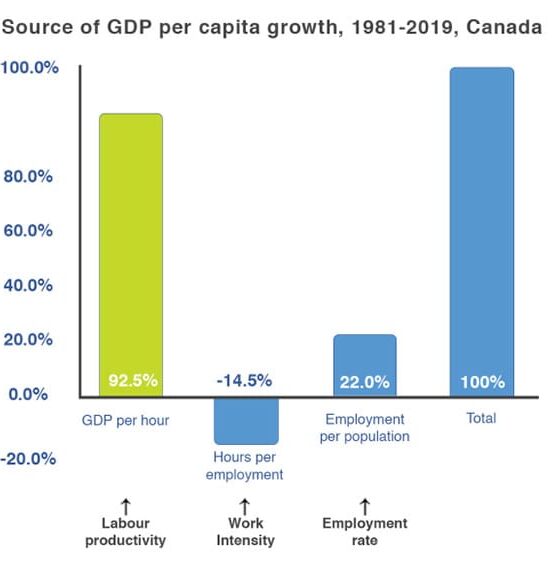British Columbia welcomes an average of 39,000 newcomers to Canada every year. In the past year, the province has become home to thousands of Syrian refugees. Helping newcomers find meaningful employment is a crucial dimension of their integration into their communities. Employment and settlement counsellors from across the province make a vital contribution to this important task. As part of our work on labour market attachment and the integration of newcomers, we have had the opportunity to reflect on the intersections between culture and employment, and the importance of becoming (or remaining) culturally competent while providing employment-related counselling.
Labour market attachment can be a critical dimension of helping newcomers to settle in Canada. While there is considerable variation in individuals’ attitudes towards employment and career development, one finding stands out in the research on career development and on immigration: generally speaking, employment plays a significant role in determining a person’s health and well-being and, particularly for newcomers, can help build a sense of inclusion and belonging.
The integration of newcomers to Canada has been top of mind for many of us lately, particularly as British Columbia welcomes thousands of refugees from Syria. Across the province, and indeed the entire country, support services have been mobilized to help newcomers settle and start their lives in Canada. A great deal of this support has been directed toward labour market attachment. Employment and settlement counsellors in BC are working hard to help newcomers secure employment that is commensurate with their skills and experience.
At Deetken, we’ve been doing a lot of thinking around the intersections between culture and employment – that is, how culture can impact attitudes toward employment and career development – and have developed a number of support suggestions for service providers. We’ve come to appreciate how important it is for service providers to exercise “inter-culturally competency” — using knowledge and skills to provide effective support to clients from diverse cultural backgrounds — when providing services (employment or otherwise) to people with cultural backgrounds different from their own. On the basis of our work, we’ve developed a number of “tips” for becoming (or remaining) inter-culturally competent when offering employment-related assistance to newcomers to Canada.

While culture is one element among many others that can have an impact on attitudes toward employment and career development, it can be an important one. Through our research we have found that there are a number of ways that culture can influence someone’s attitudes toward employment and career development and we’ve identified a number of related support suggestions for service providers.
Understanding of the purpose of work…
An individual’s understanding of the purpose or meaning of employment can be shaped by culture. The purpose of work can include: meeting basic needs; generating income; developing a sense of security; gaining or maintaining social status; creating a sense of belonging; meeting family or community expectations and obligations; feeling fulfilled or accomplished; or a combination of these and other factors.
Support suggestion: It is important to understand why someone wants or needs employment so you can appropriately guide her/his job search.
Career-related decision-making…
In some cultures, the locus of decision-making around key aspects of life, such as employment and career, is the individual. While the individual may be guided by external factors, s/he is ultimately responsible for making her/his own career choices. In other cultures, the family, the community, the government or other groups may serve as the locus for decision-making around career.
Support suggestion: In helping your client identify her/his career objectives, it is important to understand how s/he is accustomed to making decisions and who s/he feels needs to be consulted when making a decision. If your client seems comfortable with questions around decision-making, you can ask her/him directly about the degree of involvement of others – like family or community – that s/he wants in his decision-making process.
Expression of confidence in one’s own abilities…
A person’s sense of confidence in her/his capacity to succeed can be shaped by culture, among many other factors. In some cultures, individuals are encouraged to evaluate themselves positively and to express this perspective openly and with confidence. In other cultures, individuals may be more inclined to appraise themselves less positively and may be encouraged to value modesty over self-promotion.
Support suggestion: As a settlement or employment counsellor, it is important to understand how your client’s projected sense of self-esteem and/or her/his tendency toward self-promotion, on the one hand, or modesty or humility, on the other, will have an influence on how s/he articulates and pursues her/his employment or other settlement objectives. For clients who lack confidence in their employment prospects, for example, it may be useful to recommend culturally appropriate self-esteem interventions such as occupational role model and networking opportunities.
Asking for help/discussing barriers …
In some cultures, asking for help or speaking openly about barriers is considered a sign of weakness. If you assume someone is comfortable openly discussing her/his barriers, then you may think that you are “getting the whole story” when you inquire about potential barriers to employment. In fact, your client may simply be reluctant to disclose important information about her/his needs. You may miss an opportunity to help your client.
Support suggestion: Approach the issue of potential employment barriers with sensitivity. Try to make your client feel “safe” in opening up about her/his barriers and, without “prying”, ask carefully worded questions that might help identify areas where your client may need extra support. You may be required to read between the lines and use intuition or observation to try to understand your client’s communication style and ensure her/his needs are met. When working with clients who are not accustomed to the idea of counselling, it may be useful to spend extra time orienting them around the types of supports that are available and how these supports can help them achieve their goals.

A lack of inter-cultural competency can impact how you interact with a client from a different cultural background.
It is possible to unintentionally offend someone, miss cues, or misunderstand a cultural viewpoint. In addition, even though someone may appear to be fluent in a language, s/he may not entirely comprehend important nuances in communication and information. If you get these wrong or assume that someone understands you when they may not, you risk not fully comprehending what your client needs.
While there is no single suggestion for remaining inter-cultural competent in our interactions with people from different cultural backgrounds, our research has revealed a number of common “tips”:
Remain open: It is impossible to be knowledgeable enough about every situation to interpret someone’s experience and to fully understand her/his cultural norms and behaviours. But you can stay open and free of judgement, recognizing that there is so much about a person’s background, worldview and values that you don’t know.
Be curious: It’s important to be curious and to try to understand the unique challenges faced by an immigrant client during her/his job search or career transition. You can show interest in a client’s home country. You can respectfully ask questions to try to learn more about someone’s unique cultural background.
Be respectful: Everyone wants to feel respected and valued. Treat your client with respect. Listen. Make positive comments about her/his home country and/or work experience. Encourage a client to honour her/his own culture.
Remain self-aware: Be aware of the values and assumptions that you bring with you to an interaction. Understanding yourself, particularly how you interpret and judge the world, is the first step to understanding others.
Stay compassionate: Be compassionate about the challenges of moving to a new country. As many of us know, this can be a stressful and intimidating transition. And, in some cases, it may mean leaving behind a traumatic situation.
Be welcoming: Be welcoming. Provide a “safe space” for your client and make your client feel at ease. This may help your client become more comfortable asking for the support s/he needs.
If you are interested in learning more about inter-culturally competency in employment-related counsellor, try completing this Training Module developed by Deetken.



